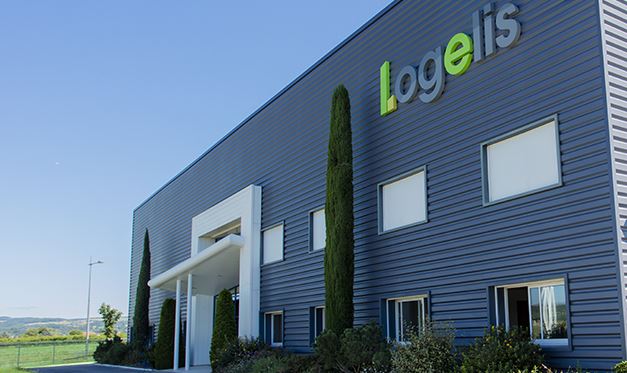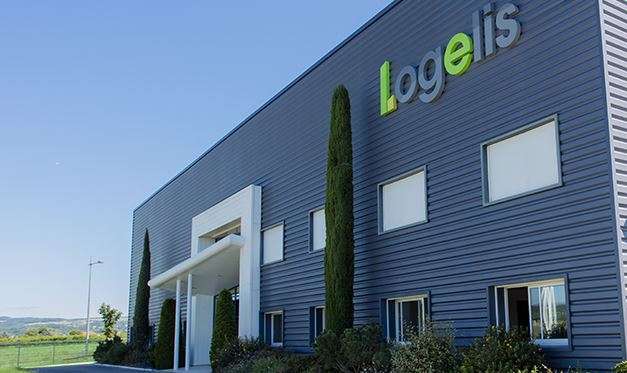
The traditional construction business uses material which, despite being the object of regular improvement and inventions, seems to satisfy clients. However, one of the problems which customers suffer the most is coordination problems between the different “layers” of the house. The plumber has to wait for walls to be set, before getting to work and the termination of the plumbing is a milestone the electrician must wait for before doing his part, and so on. Should defects arise, the situation can rapidly get out of control, with several “layers” needing to be removed to fix the problem.
Realtor website consulted a construction expert for insight on such mishaps : “Construction delays are unavoidable, which jared Loveless (operations manager for Vector East builders in Greenport, NY) attributes to the “domino effect of anything that causes a hiccup.” For example, indecision about the washer/dryer placement postpones the plumber, which in turn delays the electrician and, well, you get the picture. Weather, labor, and material shortages are also commonplace. Yet many buyers still take a contractor’s original completion date as a fait accompli and end up with no place to live.” And to this state of affairs, no one has really come up with an answer, beside hiring top-notch and expensive contractors. But it seems Logelis just has.
Logelis is a recent French construction company, which has completely re-designed the entire process of building houses. Instead of building the house layer by layer, the company enables the construction of structures using pre-fitted walls and segments. Plumbing and wiring are pre-fitted into the walls, so the assembly cancels the necessity to install them afterwards. Walls draw their solidity from fibre cement layers, with polyurethane sandwiched in between for environmental and economic performance. Polyurethane, which can be completely recycled, brings the sonic and thermal insulation to the structure. Only 10 days are needed to lay a completely finished structure on a slab of concrete, and clients can choose their type of structure and appearance. Modifications and extensions can also be easily added later in the process and, once the structure is in place, it can be worked on and modified just like any other type of house. CEO Renaud Sassi is proud of his patented achievement : “These constructions have no thermal loss”, he claims.
Because their system is standardized and cheaper than traditional options, it may change a lot for the middle classes and the underprivileged, both in Europe and abroad. Entry prices on the housing construction market average at 1000 euros (~1100$) per square meter (9 square feet) in Western Europe. Logelis compressed that entrance threshold to 915 euros. In addition to the price undercut, the fact that standardized kits can be shipped may soon entice the humanitarian world to get involved – a social and philanthropic development CEO Renaud Sassi would be keen to witness. Following the construction of a structure in Iraq, a French NGO called Logelis back with a new order for 69 housing structures for refugees in Erbil : “this project has a humanitarian layer to it, to which Logelis is attached, and involves the local population in the assembly of these structures”, says Logelis spokesman.
Building houses in the world today requires hiring a company on the site or setting up a costly construction structure. Pre-fitted housing could therefore add significant performance to humanitarian budgets for NGOs dealing in housing assistance. Logelis has also been called upon to address the demographic disruptions in Germany: “Covestro is waiting for government approval to begin construction on 100, 500-square-foot, single-story dwellings that could house a family of four in the town near Cologne. It would partner with Logelis, a French company that would produce and assemble the houses using Covestro’s polyurethane materials.” Although the company's pricing point was key in its selection, it was also chosen for its building quality: “We want to build homes, not shelters,” said Richard Northcote, chief sustainability officer for Covestro. The speed with which construction can be carried out means reduced cost of ownership for people previously barred from the market, and ability to swiftly respond to housing crises.
Construction is a global, steady and profitable market. This entails that professionals around the world are making constant efforts to improve the technology and expand their markets. But Logelis has taken the entire process from scratch, to enable cheap, quick and high-quality housing for people all around the world, while cutting out the potential process mishaps. Perhaps, with this company, the obligation to choose two items between cheap, fast and good will no longer be in effect.
Realtor website consulted a construction expert for insight on such mishaps : “Construction delays are unavoidable, which jared Loveless (operations manager for Vector East builders in Greenport, NY) attributes to the “domino effect of anything that causes a hiccup.” For example, indecision about the washer/dryer placement postpones the plumber, which in turn delays the electrician and, well, you get the picture. Weather, labor, and material shortages are also commonplace. Yet many buyers still take a contractor’s original completion date as a fait accompli and end up with no place to live.” And to this state of affairs, no one has really come up with an answer, beside hiring top-notch and expensive contractors. But it seems Logelis just has.
Logelis is a recent French construction company, which has completely re-designed the entire process of building houses. Instead of building the house layer by layer, the company enables the construction of structures using pre-fitted walls and segments. Plumbing and wiring are pre-fitted into the walls, so the assembly cancels the necessity to install them afterwards. Walls draw their solidity from fibre cement layers, with polyurethane sandwiched in between for environmental and economic performance. Polyurethane, which can be completely recycled, brings the sonic and thermal insulation to the structure. Only 10 days are needed to lay a completely finished structure on a slab of concrete, and clients can choose their type of structure and appearance. Modifications and extensions can also be easily added later in the process and, once the structure is in place, it can be worked on and modified just like any other type of house. CEO Renaud Sassi is proud of his patented achievement : “These constructions have no thermal loss”, he claims.
Because their system is standardized and cheaper than traditional options, it may change a lot for the middle classes and the underprivileged, both in Europe and abroad. Entry prices on the housing construction market average at 1000 euros (~1100$) per square meter (9 square feet) in Western Europe. Logelis compressed that entrance threshold to 915 euros. In addition to the price undercut, the fact that standardized kits can be shipped may soon entice the humanitarian world to get involved – a social and philanthropic development CEO Renaud Sassi would be keen to witness. Following the construction of a structure in Iraq, a French NGO called Logelis back with a new order for 69 housing structures for refugees in Erbil : “this project has a humanitarian layer to it, to which Logelis is attached, and involves the local population in the assembly of these structures”, says Logelis spokesman.
Building houses in the world today requires hiring a company on the site or setting up a costly construction structure. Pre-fitted housing could therefore add significant performance to humanitarian budgets for NGOs dealing in housing assistance. Logelis has also been called upon to address the demographic disruptions in Germany: “Covestro is waiting for government approval to begin construction on 100, 500-square-foot, single-story dwellings that could house a family of four in the town near Cologne. It would partner with Logelis, a French company that would produce and assemble the houses using Covestro’s polyurethane materials.” Although the company's pricing point was key in its selection, it was also chosen for its building quality: “We want to build homes, not shelters,” said Richard Northcote, chief sustainability officer for Covestro. The speed with which construction can be carried out means reduced cost of ownership for people previously barred from the market, and ability to swiftly respond to housing crises.
Construction is a global, steady and profitable market. This entails that professionals around the world are making constant efforts to improve the technology and expand their markets. But Logelis has taken the entire process from scratch, to enable cheap, quick and high-quality housing for people all around the world, while cutting out the potential process mishaps. Perhaps, with this company, the obligation to choose two items between cheap, fast and good will no longer be in effect.














